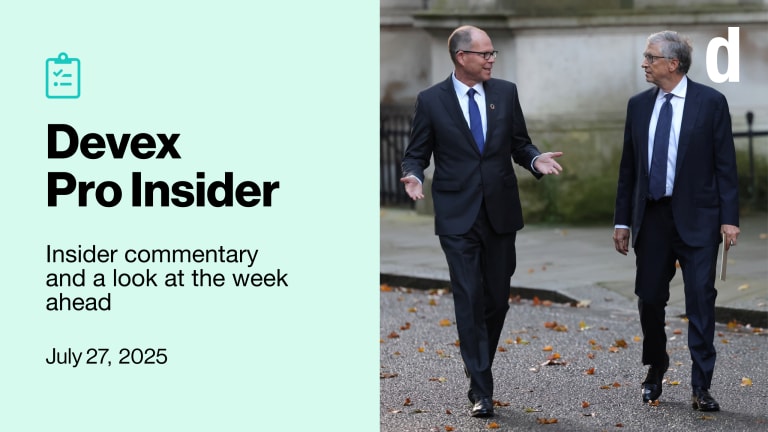
In a new end-of-year blog post, billionaire philanthropist Bill Gates said he plans to step up his advocacy around “broad support for pandemic preparedness efforts” and ramp up work on climate and energy issues in 2022.
Gates, who finalized his divorce from Melinda French Gates earlier this year, was candid in Tuesday’s post about how he has fared over the past few months, calling 2021 “the most unusual and difficult year of my life.” However, he said that he continues to devote the bulk of his time to the Bill & Melinda Gates Foundation and that he and French Gates, his co-chair at the organization, have developed a “good new working rhythm.”
“The fact that so few people at high risk in low-income countries have received [COVID-19 vaccine doses] … is unacceptable.”
— Bill GatesHere are the three biggest takeaways from the post:
1. Gates said that global pandemic preparedness is “the biggest and most important thing” that he will be working on in 2022. He is also currently writing a book — slated to come out next year — that will outline his plan for ensuring COVID-19 is the final pandemic.
Gates has previously pushed a global pandemic preparedness strategy that would include having thousands of experts “at the WHO level” dedicated to stopping the spread of infectious diseases. The World Health Organization also should conduct “germ games” that would allow countries to practice accelerating the use of diagnostic tools and implementing nonpharmaceutical interventions quickly, among other things, he said during a recent Bloomberg event.
2. Gates acknowledged that the world wasn’t as close to ending the COVID-19 pandemic as he had hoped at the end of 2020. He attributed some of slower-than-anticipated progress to disinformation about vaccines in places such as the United States, including conspiracy theories that involve him. He said this is also part of a trend toward distrust of institutions. “I’m more worried than I’ve ever been about the ability of governments to get big things done,” he wrote.
Gates further cited inequities in vaccine allocation as slowing down efforts to increase vaccination rates globally. “The world has done an outstanding job manufacturing and distributing billions of doses of vaccine, but the fact that so few people at high risk in low-income countries have received them is unacceptable,” the post said. He called for a change in how doses are allocated, as well as expanding vaccine-making capacity globally and further assistance for countries seeking to develop, manufacture, and approve their own vaccines.
That is an interesting position from Gates, who has been widely criticized for remarks that opposed waiving some intellectual property rights for COVID-19-related products, which advocates say would allow for broader global access to vaccines and other treatments.
The Gates Foundation held a similar position but announced in May that it had reversed course on the issue, voicing support for temporarily lifting vaccine patent protections. The foundation has said little since then, despite a push from other groups for a waiver to the World Trade Organization’s Agreement on Trade-Related Aspects of Intellectual Property Rights.
3. Gates also said that he entered a “new chapter” in his climate work in 2021 with the launch of the Breakthrough Energy Catalyst program under his Breakthrough Energy Ventures. The program aims to accelerate the development of clean energy technologies. He also released a new book, “How To Avoid a Climate Disaster.” “I’ve been working on climate and energy issues for a long time, but the area has become a bigger part of my focus over the last twelve months,” Gates wrote in the blog post.
Gates said that he was excited by how much attention was paid to adaptation at this year’s United Nations Climate Change Conference, adding that this will be critical to helping the world’s most impoverished people.
“We will lose the global fight against poverty if we don’t help the world’s poorest adapt to climate change, especially subsistence farmers who rely on the food they grow to feed their families and are the most at risk,” he wrote.








